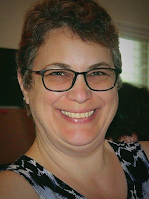Course Length: Full academic year (30 weeks)
Overview of Dreaming Spires Science Courses
Aims of the Marine Biology Course
How It Works
Each week students participate in an interactive lecture. Students are expected to sketch-note their lectures. Sketch noting (also called visual note taking) encourages dual coding and retention of information. Additionally, students will complete a study guide or choose to complete a research paragraph based on something that piqued their curiosity either in our reading assignment or lecture.
We read five subject related living books through the year. From the reading or within the lectures, students are expected to choose and define 6 words that are new to them or that they do not know very well. Of those 6 words, two are to be broken further into their root words. Lastly, students are expected to write a summary (narration) of their assigned reading and participate in a discussion involving that reading.
How It Supports Your Child's Education
Who Teaches Physics?
 Kimberly Jones holds a BSN from the University of Texas at Austin and an MEd in Secondary Education from Texas State University. She is currently working on a second master’s degree in Educational Technology with plans to complete her doctorate once her youngest graduates. Kimberly served in the military as a medic and behavioral health specialist before taking posts in pediatric and post-partum nursing. Since 2001, she has been teaching science in homeschool co-ops while homeschooling her own children -- one of whom attended university, another of whom served in the military, and two more of whom are still at home.
Kimberly Jones holds a BSN from the University of Texas at Austin and an MEd in Secondary Education from Texas State University. She is currently working on a second master’s degree in Educational Technology with plans to complete her doctorate once her youngest graduates. Kimberly served in the military as a medic and behavioral health specialist before taking posts in pediatric and post-partum nursing. Since 2001, she has been teaching science in homeschool co-ops while homeschooling her own children -- one of whom attended university, another of whom served in the military, and two more of whom are still at home.See all courses taught by Kim


